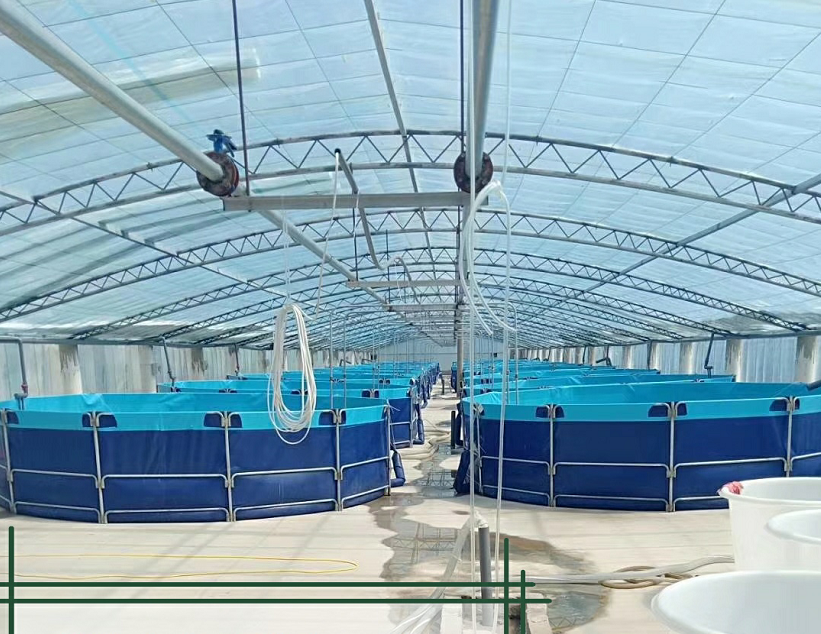Fish rearing involves the acquisition and raising of different types fish for either personal or commercial.
If you like the taste of seafood and you’re thinking about building your own fish farm, then here are some tips on how to build a fish pond that you can refer to.
In this article, the focus is on the different types of fish pond. I am going to elaborate on the different types as well as discuss their upsides and downsides, so you will find it easy to choose the best type of fish pond for your farming.
Factors like convenience, purpose of fish rearing, and the scale of production go a long way in determining the type of fish pond you will construct for your farm. While there are other types, the ones I will talk about here are;
- Earthen fish pond
- Plastic tank fish pond
- Fibreglass tank fish pond
- Concrete fish pond
- Cage tank fish pond
1. EARTHEN FISH POND This type of fish pond is also called natural pond because it can only be constructed in a place where there is enough clay soil and a flowing underground water. A swampy environment is the most fitting for an earthen fish pond.
Digging of the pond can be done manually or with the use of an excavator. The pond usually has a depth of 1.5 meters with the water reaching about 1.2 meters. Some of the soil is used to build a boundary around the earthen pond to serve as protection from flood during rainy season.
Advantages of the Earthen Pond
- It is not expensive to construct
- It can contain a large number of fish
- The fishes are bred in an environment similar to their natural habitat
- The growth rate of fish is fast
Disadvantages of Earthen Fish Pond
- There is poor security
- It is susceptible to flooding
- Fishes might escape to the flowing water if anything happens to the pond boundary.
2. PLASTIC TANK FISH POND As the name implies, this type of fish pond involves breeding of fish in a tank made of plastic or rubber. You can easily buy if from the manufacturers who produce them in different sizes.
Advantages of Plastic Fish Pond
- There is no burden of a manual labour construction
- This pond is very easy to maintain
- It can be used indoors
- It is easy to move the pond around
Disadvantages of Plastic Fish Pond
- Overcrowding of fishes
- Water management (periodic change of water) is difficult.
3. FIBREGLASS TANK FISH POND This is a transparent tank which has a special use; it is meant for breeding fingerlings at a particular temperature before they can be moved to the outdoor tanks.
Advantages of Fibreglass Tank Fish Pond
- They can be moved around with ease
- Fishes can be monitored at a glance
Disadvantages of Fibreglass Tank Fish Pond
- They can only be used for fingerlings
- They cannot contain huge amount of fish.
4. CONCRETE FISH POND This type of pond is made of concrete and very popular in fish farming. It is not a simple pond and the construction is very complicated. If you want to use a concrete fish pond, make sure it is built by professional Civil/Construction Engineers to prevent a disaster in your farm.
Advantages of Concrete Fish Pond
- It cannot be flooded
- It is easy to keep predators away from the fishes
- The activities of the fishes can be easily monitored
- It can be used for a long time without needing any major maintenance
Disadvantages of Concrete Fish Pond
- Construction costs a lot of money
- There is a higher than normal pH in the first few years
5. CAGE TANK FISH POND These fish ponds can only exist in a riverine area. They take the form of an enclosed cage, after constructing these ponds, they are placed inside fresh water and to feed the fishes, you will need to use a canoe or boat to move from cage to cage within a large body of water.
Advantages of Cage Tank Fish Pond
- The fishes are in their natural habitat
- Fishes grow rapidly
- A very large amount of fishes can be raised with this type of pond
- Oxygen is always available
Disadvantages of Cage Tank Fish Pond
- You must take a boat trip before you can monitor the activities of the fishes.
- The construction process is cumbersome
- If there happens to be water pollution, all fishes will be lost at once.
The above are types of fish ponds you may find anywhere in the world.
Post time: Oct-11-2021
